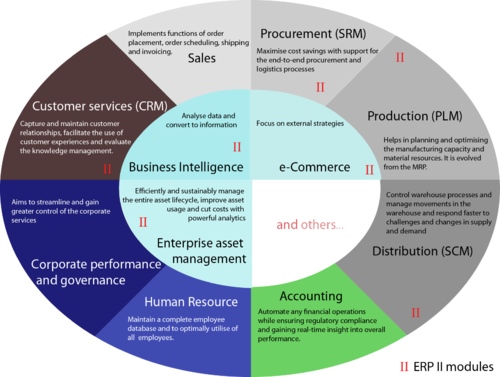ERP-Enterprise Resource Planning
All Business Activities managed on one platform

- product planning, purchase
- production planning
- manufacturing or service delivery
- marketing and sales
- materials management
- inventory management
- shipping and payment
- finance
Enterprise resource planning (ERP) is business process management software that allows an organization to use a system of integrated applications to manage the business and automate many back office functions related to technology, services and human resources.
Enterprise resource planning (ERP) is the integrated management of core business processes, often in real-time and mediated by software and technology. These business activities can include:
ERP is usually referred to as category of business-management software—typically a suite of integrated applications—that an organization can use to collect, store, manage and interpret data from these many business activities.
ERP provides an integrated and continuously updated view of core business processes using common databases maintained by a database management system. ERP systems track business resources—cash, raw materials, production capacity—and the status of business commitments: orders, purchase orders, and payroll. The applications that make up the system share data across various departments (manufacturing, purchasing, sales, accounting, etc.) that provide the data. ERP facilitates information flow between all business functions and manages connections to outside stakeholders.
The ERP system integrates varied organizational systems and facilitates error-free transactions and production, thereby enhancing the organization's efficiency.








